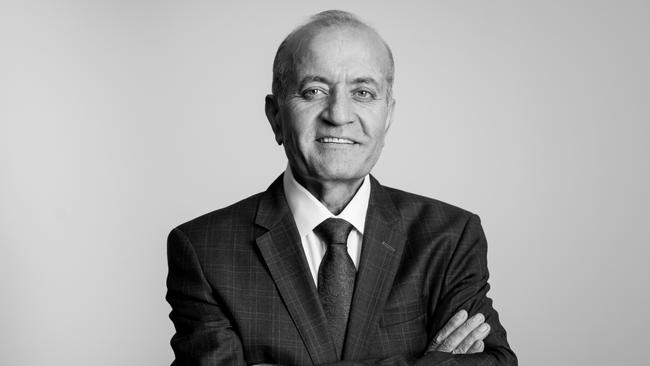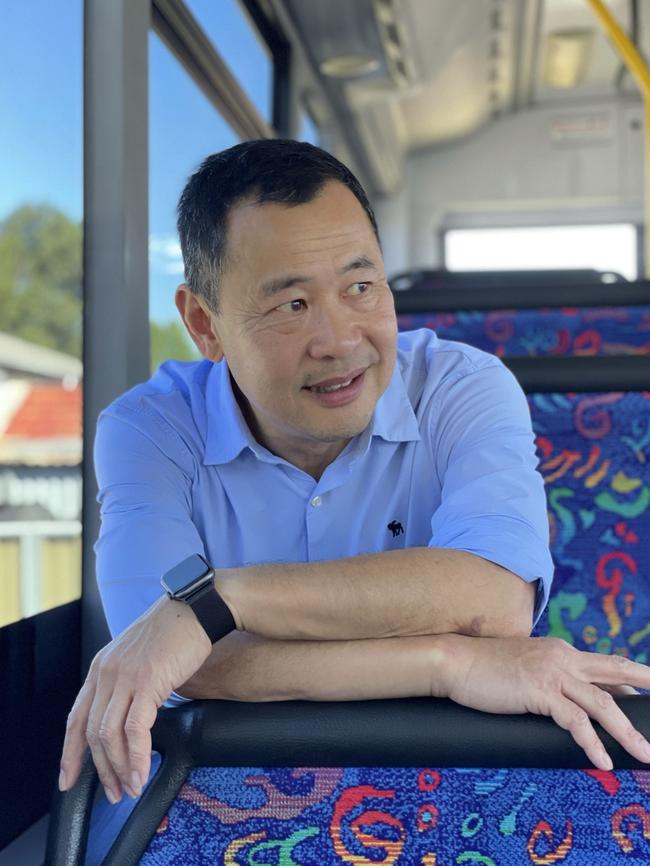KPMG report: we need more women leaders in family business
Family business is a key driver of the Australian economy but it needs to evolve to flourish.

Australian family businesses are packed with women CEOs — that’s Chief Emotional Officers — but only 22 per cent have women chief executive officers, according to KPMG consultant Robyn Langsford.
The chief emotional officers are the women, often the co-founders, who wind up with the job of holding the operation together over the difficult times, but who never get to be the boss.
“It suggests that even in family businesses there is a glass ceiling,” says Langsford, the partner in charge of family business at the professional services firm.
“A lot comes down to the stereotypes of females having the traditional nurturing, emotional traits that see them being consigned to the role that keeps the family together and operating as a unit. But it is not a formally recognised role.”
In fact the 22 per cent figure is better than the 17 per cent of women chief executives across all Australian businesses. It’s also the case that in some family companies, the power may rest with a female leader even if she does not have the title of chief executive.
But Langsford argues that bringing female family members to the top leadership roles would help broaden the styles and skills in companies often led by male founders: “I would love to see more women on the boards of family businesses and in the chief executive roles.”

A new report into the sector, Transition, Diversity and Entrepreneurship: How Australian family businesses are sparking next-generation success, says that with 67 per cent of all Australian businesses being family businesses, gender and other diversity is important to ensure the sector continues to be dynamic and competitive.
The report by KPMG and the University of Adelaide’s Family Business Education and Research Group, says family businesses provide 55 per cent of private sector employment, 48 per cent of total private sector wages paid and 50 per cent of Gross Industry Value Added.
It identifies three key issues for family businesses – the need for a succession plan; the need for more diverse leadership; and the need to continue to build the entrepreneurial skills that build the original business. The report says women often step up, consciously or not, into the “hidden” chief executive role of chief emotional office.
“Innate characteristics of women as nurturers and caregivers can translate to women taking care of the emotional needs of the family, keeping the family together and perpetuating the family’s value and traditions to the next generation,” it says.
Langsford says one of the issues around succession plans is that the baby boomers who have built so many Australian companies retire a lot later than the Millennials and Gen Xers suggest as the age when they want to leave work.
“They are often the founders of the business and it can be incredibly hard to step way and give control to someone else,” says Langsford.
The potential for conflict is real, given that younger family members want the founders to step away so they can implement their own ideas.
She says more than 70 per cent of family businesses don’t have a transition plan – something which her business unit at KPMG argue is keen to change.
Bringing in new blood from outside the family – leadership diversity – is difficult, Langsford says, but crucial: “You need to strike a balance between finding people with values that align with the business but also bring in different perspectives and experience. It’s an opportunity to fill experience and skills gap that family members can’t provide.” Typically in the founding generation the founders hold meetings around the dinner table because everyone is involved. But as it gets bigger, not everyone around the table has the skills needed.
One of the biggest issues for family businesses is retaining the entrepreneurial spirit of their founders. Langsford says founders were usually innately entrepreneurial and risk-takers and the key to ensuring the longevity of family businesses is maintaining that spark.
“Founders typically are willing to take a lot more risks in setting up a business but by the time you get to the second or third generation, they have witnessed the ups and downs of the business cycles and the challenges that have been faced, and they are more risk averse,” she says. “At that point you may need to get an outsider in to broaden the conversation.”
The report assessed the entrepreneurial mindset (the Entrepreneurial Orientation) of family business leaders based on five qualities – innovation, risk-taking, proactiviness in responding to market opportunities, aggressiveness in taking on key competitors, and the extent to which they allow employees to act autonomously to pursue entrepreneurship opportunities. It found family businesses in the Asia Pacific region showed higher levels of EO compared with most other geographical regions. The challenge, however, is to continue a founder’s mindset across the generations.
Langsford says immigration has been important to the creation of family businesses here: “I love the stories of the migrants who come here with a suitcase and who have not even finished school but they are able to start a business and do well.”
She “married into a family that had a family business” and ran her own consulting practice before joining KPMG and says: “The key thing I love about family businesses is that they are in for the long haul.”
Down the generations
Elie Chami (main picture, above) is chairman of Vitex Pharmacies. Two decades after immigrating here from post-war Labanon, he identified a gap in the market to export Australian-made complementary medicine to the Middle East and the Arabian Gulf.
He and his son, Dr Aniss Chamie, the company’s chief executive, set up the company, which is now Australia’s biggest contract manufacturer of vitamins, minerals and nutritional supplements.
His tip for success: “If you don’t plan, you don’t get to where you want to get to.”

Les Dion is the second generation of his family to run Dion’s Bus Service in the Illawarra in NSW. The family business expanded from market gardens in the early 1900s to a bus service, founded by Tom Dion, in 1923.
Tom’s siblings all worked in the business. They included Les Dion’s father, known as Les Snr. Les Jnr, who now runs the company, says: “Many of the first generation in my family retired at a late age, they enjoyed the interaction with the public so much they found it hard to let go as it was a significant shift in their lives.”
Indeed Les Snr retired at 85, but Les Jnr has different ideas. “I am planning on retirement being a gradual transition,” he says. “I have used technology to establish systems, processes and controls so that I can step away from the business, but continue to have an oversight role and provide strategic direction.”
Source: KPMG/Adelaide University report



